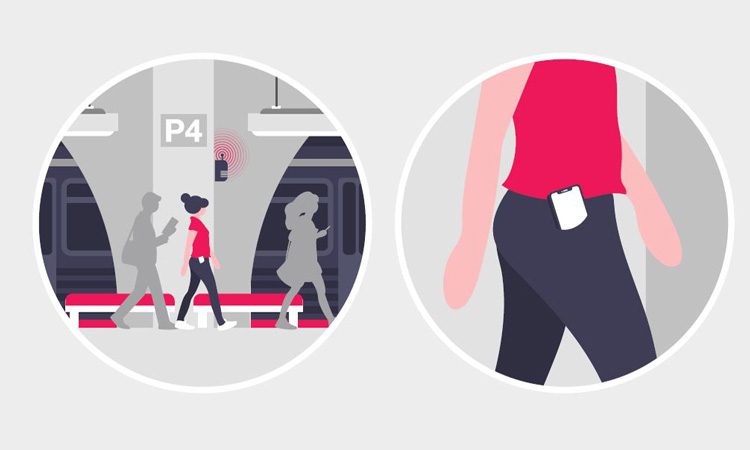Could smart ticketing technology signal the end of station barriers?
Posted: 12 August 2019 | Global Railway Review | No comments yet
Queues in stations could be a thing of the past with new smart ticketing technology which detects an app on individuals smart phones and charges them automatically.


The end to ticket barriers could be nigh, with new technology being developed and trialled by Hitachi Rail. The prototype technology would use sensors on trains to detect an app on passengers’ smartphones as they board. There would be no need to remove phones from pockets or bags and no need for station barriers, signalling an end to queues at the barrier or ticket machine.
Passengers will be automatically charged the correct fare, and Hitachi already has proven smart ticketing technology to ensure the passenger will not be overcharged.
The technology will now undergo a rigorous testing programme for Trenito Transporti in Trento, Italy, with Hitachi hoping to bring it to the UK for use on buses, trams and trains.
Karen Boswell, Managing Director, Hitachi Rail, said: “This technology has the ability to transform public transport in every corner of the country, from rural buses to city centre train stations. The common travelling woes of queues at ticket machines or trying to find the cheapest fare could be solved without even needing to reach for your pocket.
“We are now beginning to test this technology and looking at the possibility of one app working across large stretches of a country. For example, a passenger could use the app to take a bus in their local town and a train elsewhere in the country all in one day.
“This technology could have potential to make public transport more accessible for all passengers.
“We believe this would also be good news for operators, who can entice more people to use public transport thanks to this simple-to-use payment method.”
Large queues and bottlenecks around ticket barriers could be removed by installing smart sensors at the entrance to platforms or vehicles.
The technology can be applied to all forms of public transport, including buses and trams, allowing faster boarding times.
Hitachi has long pioneered smart ticketing apps which are connected to your payment card. For example, in 2001 Hitachi software launched a card used across Japan (known by tourists in Tokyo as the Penguin card).
Results from the new proof of concept work in Italy will help inform the best ways to apply this technology in the future.
The new innovation could work across the UK and help encourage more people to use public transport by:
- Removing rail ticket machine and fare confusion. Only 25 per cent of users understanding the correct ticket types, Hitachi’s solution could see more people trust taking public transport
- Promoting buses as simple to use. As the number of bus journeys fall1, the seamless approach of walking on a bus without a ticket could encourage more to choose this form of transport over cars
- Improving accessibility for passengers with disabilities or carrying young children. Removing the need to show physical tickets on buses gives greater freedom to passengers with restricted movements.





